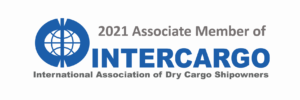A Happy Ship is a Safe Ship
This is a concept that it is argued on all training and support actions for seafarers by companies and organizations worldwide. This concept is absolutely correct; there is no dispute about that!
Since 2009, when I delivered my first training for seafarers about “Mental Health Awareness” until today, I strongly believe that a seafarer who is resilient, aware and healthy, physically and mentally, performs better, is safer and is much more loyal to the organization.
However, there is a very important factor that we seem to have neglected: the families. For every employee it is argued that their network consists of coworkers and a social network, mainly family. Based on that, it seems that we are overlooking maybe the most important part on a seafarer’s life.
Admittedly, in the past companies have offered significant health and support benefits to their seafarer’s families and at great expense as well. Even though, there is no statistical evidence about the effect of this, empirically, it seems that it gives the seafarer and their family peace of mind and this increases retention significantly.
So, it makes sense to argue that “A happy family makes the safe and well-performing seafarer.” Is that enough though? Over the years, I have been fortunate enough to speak with spouses of seafarers from many nationalities and ranks. My impression is “NO.” Let me be clear, I am not saying that these benefits are not important. They are very important! But they are simply not enough in some respects.
We neglect the stress and the burden a spouse experiences while their partner is onboard. We often mention how social media, if not used correctly, can affect the seafarer’s mental status, but we have not considered how we can assist the most significant source, the families, in avoiding these mistakes. Most organizations are providing, at considerable expense, the means for better and more direct communication, between seafarers and their family, but with no support, guidance or help to make this communication work for the benefit of all parties involved, including the company.
When I did my military service, I was a psychologist stationed abroad. Although, the camp provided modern services that made communication with our families easier and more direct, sometimes instead of helping and making us happier it had the opposite effect. Simple arguments and misunderstandings tended to be exaggerated by many soldiers, leading to stress and in some cases severe reactions like panic attacks and depression. In a couple of cases it caused suicidal thoughts as well. A significant factor that caused these symptoms and thoughts was that we were away, and as a result handling some information was extremely difficult.
My interaction with seafarers has shown me that they can present, and in some cases have presented, the same reactions for exactly the same reason. After a difficult day a heated or indifferent discussion because, for example, their spouse is tired can start a chain of thoughts that can lead them to very dark places. We need to acknowledge that the pressure upon the spouses is significant. It is not more or less than the pressure a seafarer experiences, it is just different.
Briefly, the spouse has to deal with the worry of the safe return of the seafarer as well as the everyday problems and issues that arise while the seafarer is away. Another important issue that we tend to overlook is that the spouse feels that they must assist the seafarer to readjust to the family’s everyday life upon their return. This is a great cause of pressure for some spouses. These issues are not as simple as they sound, and they are certainly not insignificant, since they cause a great deal of stress and pressure.
Training spouses, briefly but practically, on the following topics is beneficial:
• The reality of the maritime profession
• Acknowledging spouses’ difficulties
• Communication skills
• Social media
• Stress management and resilience
• Problem-solving
• Conflict resolution
Also, providing simple and practical advice can assist the family to function better. Consequently, the seafarer has greater peace of mind. Furthermore, it can play a paramount role on helping the seafarer perform better and remain in the profession longer without worrying about their family’s well-being.
All this might seem theoretical, but in reality, it is not. When interviewing seafarers about their concerns, family is one of the top three on their list, if not number one.
Currently, we are focusing so much on their technical, soft-skills, mental health and other training for good reason but, we neglect the family. A more holistic approach can definitely play a significant role in performance, safety and retention.
“A happy ship is a safe ship” indeed.
But: “A happy family makes a happy seafarer.”
Dimitrios Lyrakos is Chief Executive Officer of ASCOT Consulting LTD.
This article was originally posted on www.maritime-executive.com





